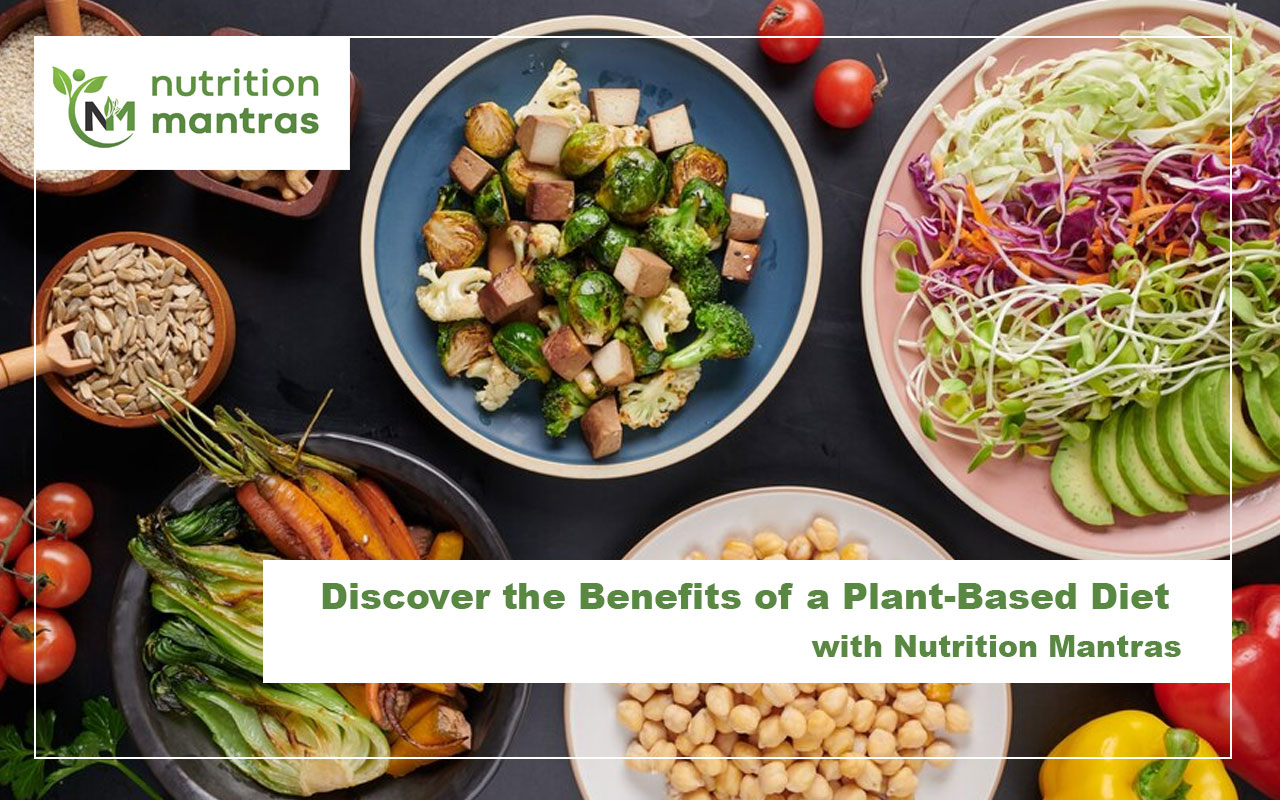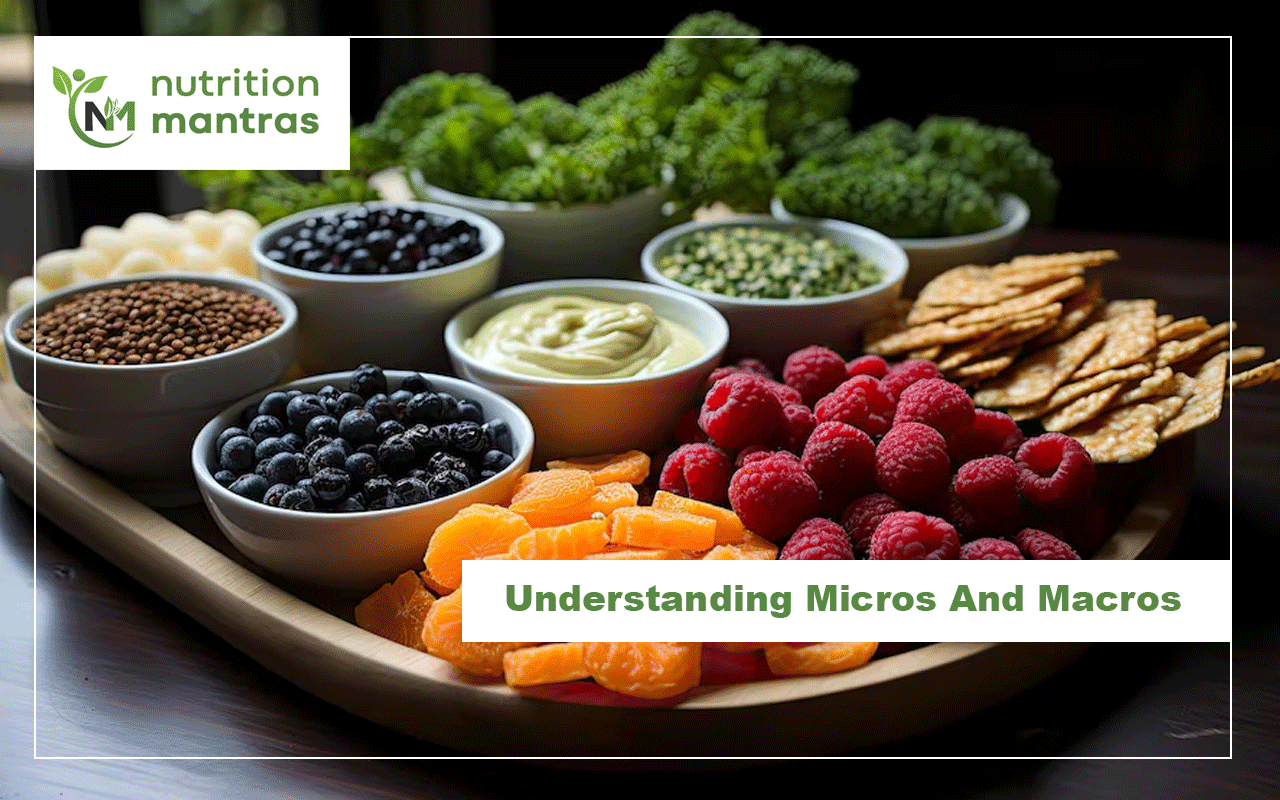Discover the Benefits of a Plant-Based Diet with Nutrition Mantras: A Journey to Health and Sustainability
In recent years, the plant-based diet has surged in popularity, drawing attention for its numerous health benefits and positive environmental impact. At Nutrition Mantras, we believe in the transformative power of a plant-based diet. More people than ever are choosing to incorporate more plant-based foods into their diets, seeking improved health, ethical eating, and sustainable living. This blog explores what a plant-based diet entails, its benefits, tips for transitioning and how to maintain this lifestyle for the long term.

What is a Plant-Based Diet?
A plant-based diet focuses on foods derived from plants, including fruits, vegetables, nuts, seeds, oils, whole grains, legumes and beans. Unlike a strict vegan diet, which excludes all animal products, a plant-based diet doesn’t necessarily eliminate all animal-derived foods but prioritizes plant foods as the main source of nutrition.
Why Choose a Plant-Based Diet?
Heart Health:
Plant-based diets are rich in fiber, antioxidants, and healthy fats, contributing to better heart health. Studies show that individuals on plant-based diets have lower cholesterol levels, reduced blood pressure and a decreased risk of heart disease.
Weight Control:
With fewer calories and higher fiber content, plant-based diets are effective for weight loss and maintenance. The high fiber content promotes satiety, reducing the likelihood of overeating.
Reduced Risk of Chronic Illnesses:
A diet rich in plant foods lowers the risk of chronic diseases such as type 2 diabetes, certain cancers, and hypertension. The abundance of vitamins, minerals, and phytonutrients in plant foods plays a crucial role in disease prevention.
Digestive Health:
The fiber in plant-based foods supports digestive health by promoting regular bowel movements and nurturing a balanced gut microbiome, reducing the risk of constipation and other digestive issues.
Environmental Sustainability:
Plant-based diets are more sustainable, requiring fewer resources and producing fewer greenhouse gas emissions compared to diets high in animal products. They also help reduce deforestation and habitat destruction.
Why Choose a Plant-Based Diet?
Environmental Sustainability:
Plant-based diets are more sustainable, requiring fewer resources and producing fewer greenhouse gas emissions compared to diets high in animal products. They also help reduce deforestation and habitat destruction.
Explore Plant-Based Proteins:
Discover the wide variety of plant-based protein sources such as beans, lentils, tofu, tempeh, quinoa, and edamame. These foods are not only nutritious but also versatile and can be used in a range of dishes.
Fill Half Your Plate with Vegetables:
Make vegetables the star of your meals by filling half your plate with a variety of colorful vegetables. Aim for a mix of leafy greens, cruciferous vegetables and root vegetables.
Experiment with Whole Grains:
Incorporate whole grains like brown rice, quinoa, farro, and barley into your diet. These grains are rich in fiber, vitamins and minerals and can serve as the foundation for many meals.
Snack Smartly:
Choose plant-based snacks such as fruit, nuts, seeds, hummus with vegetables, or whole-grain crackers. These snacks are nutritious and satisfying, helping to keep your energy levels stable throughout the day.

Learn to Cook Plant-Based Meals:
Spend some time exploring plant-based recipes and experimenting in the kitchen. Cooking at home allows you to control the ingredients and make healthier choices. There are countless plant-based cookbooks and online resources to inspire you.
Maintaining a Plant-Based Diet
Consistency is key to reaping the long-term benefits of a plant-based diet. Here are some strategies to help you stay on track:
Plan Your Meals:
Meal planning helps you stay organized and ensures you have healthy options available. Plan your meals for the week, make a shopping list and prep ingredients in advance.
Stay Informed:
Continue learning about plant-based nutrition and its benefits. Staying informed can keep you motivated and help you make better dietary choices.
Connect with a Community:
Join plant-based eating groups or online forums to share experiences, recipes, and tips. Having a support network can be encouraging and provide a sense of community.
Listen to Your Body:
Pay attention to how your body responds to different foods and adjust your diet accordingly. Everyone’s nutritional needs are unique and it’s important to find what works best for you.
Adopting a plant-based diet is a powerful step towards improving your health, supporting environmental sustainability, and enhancing your overall well-being. By focusing on whole, plant-based foods and making gradual changes, you can successfully transition to and maintain this rewarding lifestyle. Remember, every small step counts and the benefits of plant-based eating are well worth the effort. So why not start today and experience the positive impact of a plant-based diet on your life?


